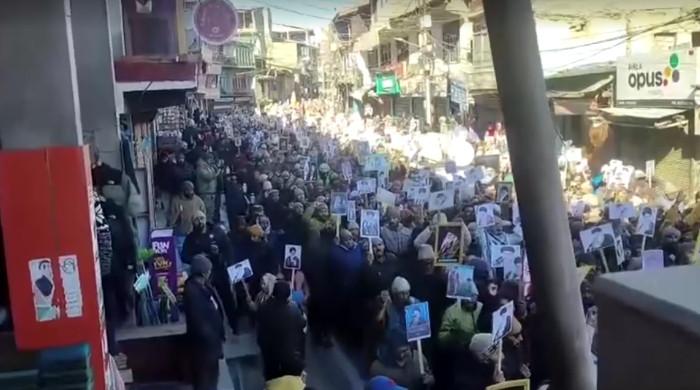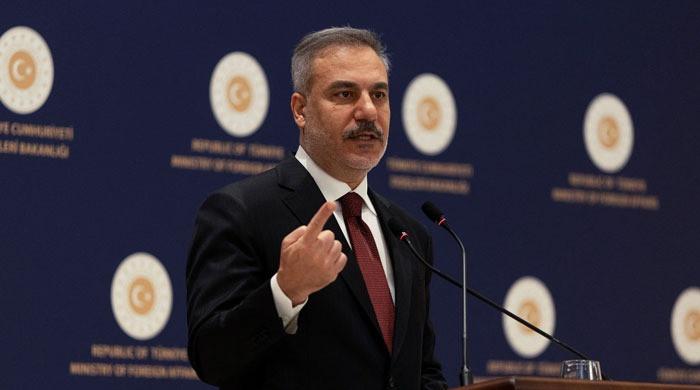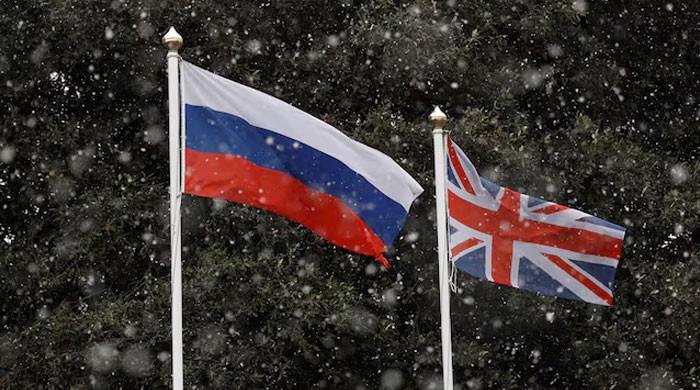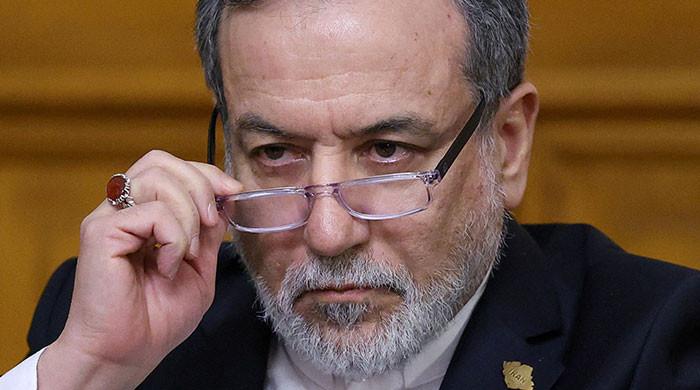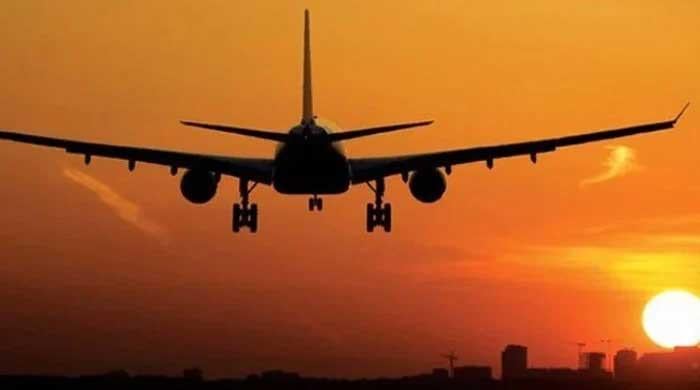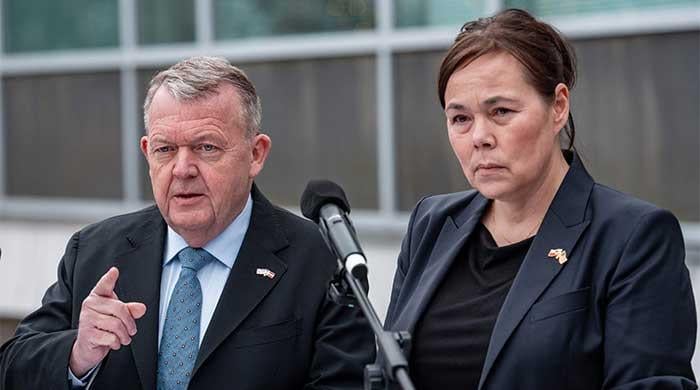Taliban say ceasefire will not be extended as suicide attack kills 18 in Jalalabad
On Saturday a suicide assault on a gathering of Taliban, security forces and civilians in the province killed at least 36 people and wounded 65
June 17, 2018
JALALABAD: A suicide attack in restive eastern Afghanistan on Sunday killed at least 18 people in a crowd celebrating the Eid holiday, the second assault in as many days to mar an unprecedented ceasefire.
There was no immediate claim of responsibility for the suicide attack in Jalalabad city, outside the office of the Nangarhar provincial governor.
Daesh, which was not part of the truce, had claimed an even deadlier blast near the city a day earlier.
Further dampening hopes for peace after jubilant scenes during the ceasefire over the Muslim holiday, the Taliban announced they would not be extending the truce beyond Sunday night.
Nangarhar provincial health director Najibullah Kamawal put the death toll from Sunday's blast at 18 with 49 wounded.
"Some of the wounded are in a serious condition," Kamawal added, suggesting the death toll could rise.
The governor's spokesman Attaullah Khogyani said 14 people had been killed and 45 wounded when the bomber on foot blew himself up among a crowd of Taliban fighters, local elders and civilians leaving the governor's compound after attending a special event for Eid.
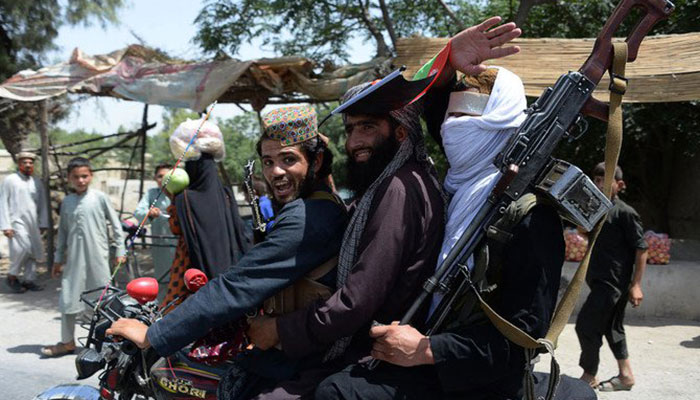
On Saturday a suicide assault on a gathering of Taliban, security forces and civilians in the province killed at least 36 people and wounded 65, Kamawal told AFP.
The Afghanistan franchise of Daesh had claimed responsibility for that attack.
Taliban spokesman Zabihullah Mujahid announced the decision to resume fighting after President Ashraf Ghani said Saturday a government truce with the militants would be extended. He asked the group to reciprocate.
"The ceasefire ends tonight and our operations will begin, Insha Allah(God willing). We have no intention to extend the ceasefire," Mujahid told AFP in a WhatsApp message.
Mujahid made no reference to Ghani's announcement.
No surprises
The first formal nationwide ceasefire since the 2001 US invasion had been widely welcomed across the country as Afghans — Taliban, security forces and civilians — celebrated Eid, the holiday that caps the fasting month of Ramazan.
Taliban fighters and security forces embraced and took selfies with each other over the first two days of the Muslim holiday.
Civilians also flocked to greet the militants, who had left their posts or areas under their control to celebrate the halt in hostilities, fuelling hopes among war-weary Afghans that peace was possible.
Ghani's extension of the government's eight-day ceasefire, which had been due to expire Tuesday night, drew immediate international support and calls for the Taliban to follow suit.
The Taliban had agreed to a truce but only for the first three days of Eid, which started Friday, promising not to attack Afghan soldiers or police. They would, however, continue attacking US-led NATO troops.
With the ceasefire due to end Sunday night, fighting is likely to resume on Monday.
Further unnerving some ordinary Afghans, who have borne the brunt of the war, is the number of Taliban fighters now inside cities around the country.
Before the Taliban's ceasefire had even started, analysts had expressed cautious optimism that the truces, if successful, could help build trust between the government and the Taliban and lay the groundwork for peace talks.
But it was clear on Sunday that not everyone in the Taliban approved of the bonhomie between their fighters and security forces.
The Taliban ordered their fighters to avoid gatherings of security forces and civilians, ostensibly to avoid further civilian casualties, following Saturday's attack.
"The enemy has misused the ceasefire issue and there is a chance of more such bad incidents happening," Mujahid said in an earlier message.
But some Taliban commanders also told AFP they disapproved of their fighters visiting government-controlled areas and celebrating with police and troops.
The Taliban's decision to resume fighting came as no surprise to several Western diplomats in Kabul.
"If they extend the ceasefire they will be compelled to talk, which I think the Taliban isn't interested in. They're looking for an outright victory," one diplomat told AFP on condition of anonymity.
Civilians flocked to greet the militants, who had left their posts or areas under their control to celebrate the halt in hostilities, which had fuelled hopes among war-weary Afghans that peace was possible
The first formal, nationwide ceasefire since the 2001 US invasion had been met with jubilation across the country as Afghans — Taliban, security forces and civilians — celebrated Eid, the holiday that caps the fasting month of Ramazan.
Title image: File photo of an attack in Afghanistan.




